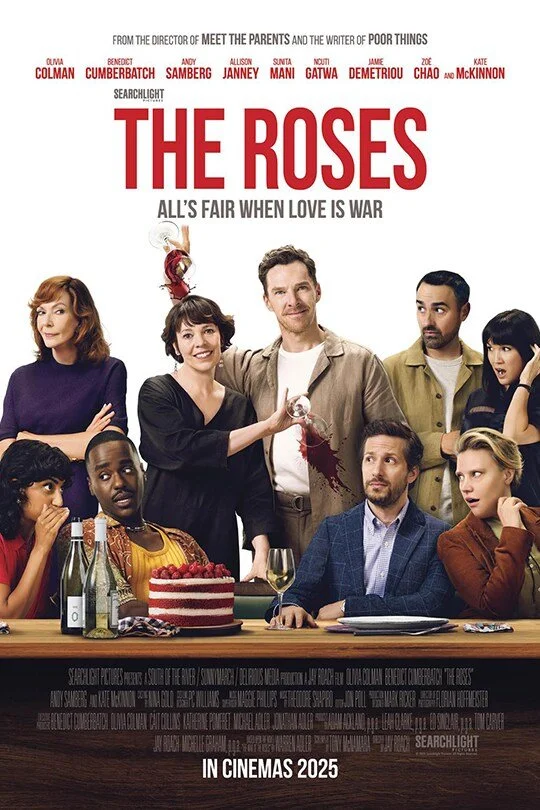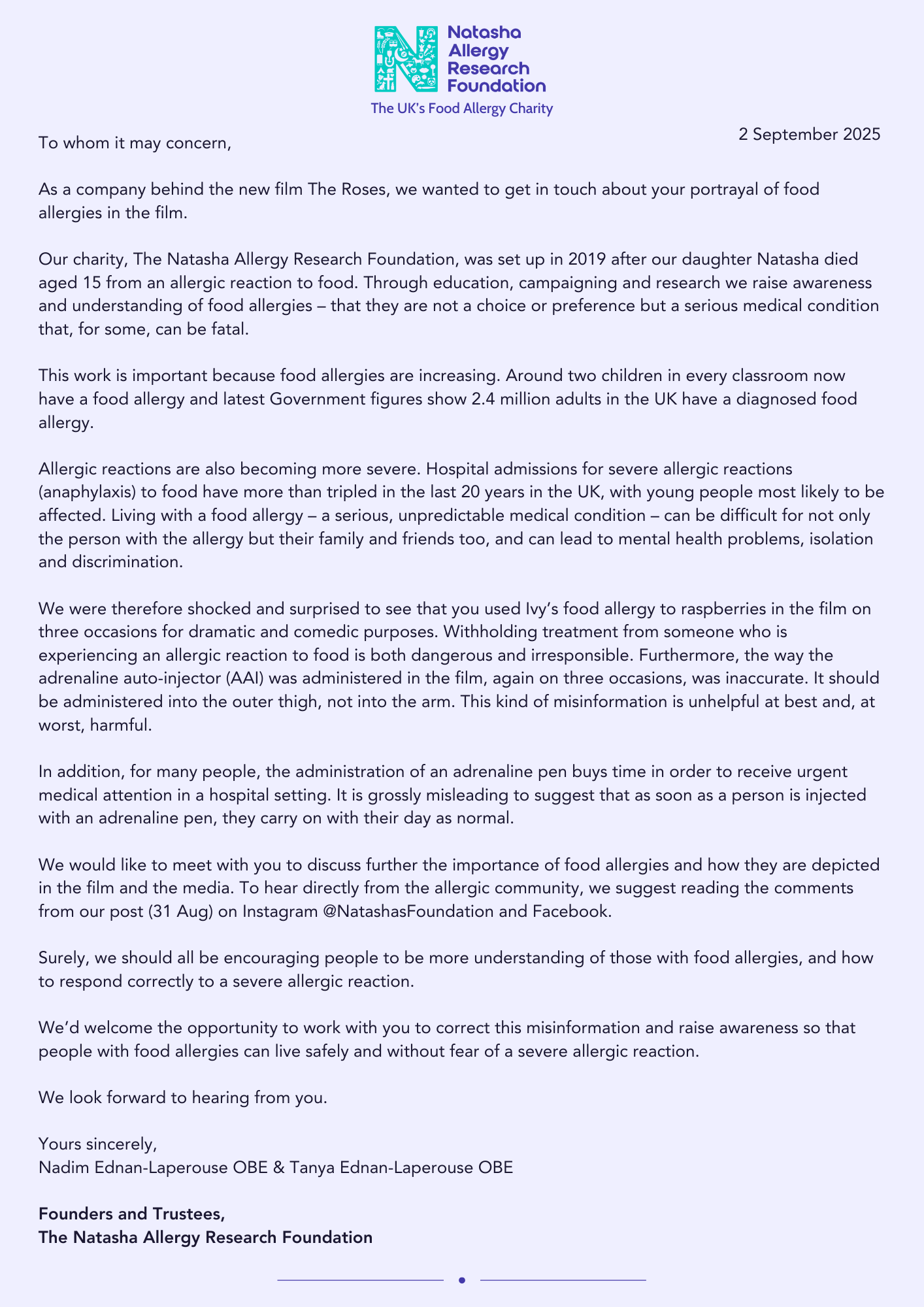Food Allergies Are Not a Punchline: Why We’ve Written to the Filmmakers Behind The Roses
The newly released film The Roses (starring Olivia Colman and Benedict Cumberbatch) includes a deeply disturbing scene: a husband deliberately feeds his wife a food he knows she is allergic to, then withholds her EpiPen until she agrees to sign divorce papers.
Gillian Miners, someone living with the daily reality of food allergies, shared with us,
“We just went to see The Roses at the cinema… totally shocked and traumatised by the anaphylactic scenes with allergies weaponised. I am shaking. It was such a dangerous portrayal of life-threatening food allergies.”
The Roses Film Poster
This is not just poor taste. It is dangerous.
Withholding life-saving medication in a medical emergency is not remotely funny. To make matters worse, the film depicts an adrenaline auto-injector (EpiPen, Jext) being administered incorrectly, repeatedly. This is factually inaccurate and risks spreading dangerous misinformation.
For people living with severe food allergies and their families this type of portrayal is not only triggering, but harmful. Food allergies are a medical condition that can, in an instant, become life-threatening. Using them as a plot twist for laughs is careless, offensive, and reinforces harmful myths about allergic reactions and anaphylaxis.
At a time when education and awareness about food allergies are more important than ever, this scene takes us backwards. It undermines the lived reality of millions of people and trivialises the fear and trauma families face every day.
That’s why we have taken action. We have written to everyone involved in the making and distribution of The Roses, including the production companies and distributors expressing our deep concern and calling for accountability.
Food allergies are not a joke. Anaphylaxis is not entertainment.
We will continue to speak out, to challenge harmful portrayals, and to ensure that those living with allergies are seen, respected, and protected.


